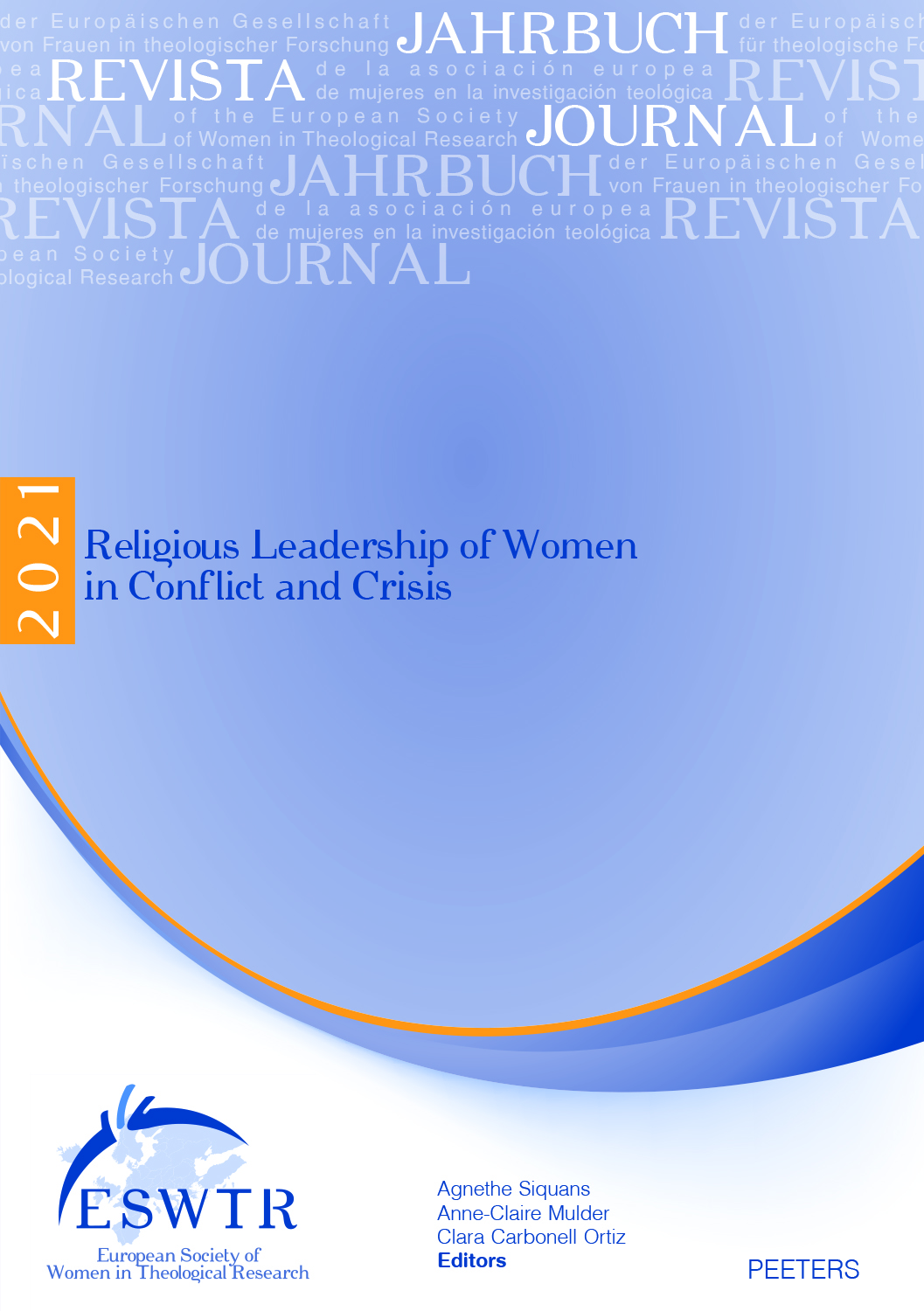 previous article in this issue previous article in this issue | next article in this issue  |

Preview first page |
Document Details : Title: Weibliche Genealogie als Konzept lebendiger Gemeinschaft Author(s): FISCHER, Irmtraud Journal: Journal of the European Society of Women in Theological Research Volume: 16 Date: 2008 Pages: 57-66 DOI: 10.2143/ESWTR.16.0.2036248 Abstract : Genealogies as systems of social order play a role in feminist publications on philosophy, but surprisingly not in feminist research on the Old Testament. Old Testament genealogies are understood as texts bridging ages and spanning generations, through which the line of promise may be traced. Women play a decisive role as mothers, and are also described as founding genealogies. The Italian philosophers of the Diotima group linked genealogy, figuratively speaking, with their concept of affidamento (trust). Genealogy is seen here as a concept of discipleship that is likewise also to be found in the Old Testament: women’s figures are patterned on the literary figures of both genders, e.g. when Judith is drawn as a new David or new Jael. This contribution attempts to apply genealogy as a form of relationship in thought and life to the ESWTR, appealing for greater use to be made of our network. Las genealogías como sistema de orden social son importantes en las publicaciones feministas filosóficas pero, por sorprendente que parezca, no son importantes en la investigación feminista del Antiguo Testamento. Las genealogías bíblicas se presentan como textos que atraviesan épocas y vinculan generaciones poniendo de manifiesto la transmisión de la Promesa. Las mujeres desempeñan en ellas un papel decisivo en tanto que madres, pero también se las representa como fundadoras de las genealogías. Las filósofas italianas del grupo Diotima han vinculado la genealogía en sentido figurado con su concepto del affidamento. Entienden que la genealogía es un concepto de sucesión, que también puede encontrarse en el AT: las figuras femeninas se configuran a imagen y semejanza de personajes literarios de ambos sexos, cuando por ejemplo a Judith se la designa como el nuevo David o la nueva Jael. Esta aportación pretende pues aplicar a la ESWTR/AFERT la genealogía como concepto de vinculación de pensamiento y visión vital, y culmina en una llamada a un uso más intenso de la ESWTR/AFERT como red. Fatal error: Uncaught mysqli_sql_exception: Column 'lib_id' cannot be null in /srv/data/web/vhosts/poj.peeters-leuven.be/htdocs/secure/POJ/tracker2.php:212 Stack trace: #0 /srv/data/web/vhosts/poj.peeters-leuven.be/htdocs/secure/POJ/tracker2.php(212): mysqli_query() #1 /srv/data/web/vhosts/poj.peeters-leuven.be/htdocs/article.php(579): track2_page_hit() #2 /srv/data/web/vhosts/poj.peeters-leuven.be/htdocs/content.php(636): include('...') #3 {main} thrown in /srv/data/web/vhosts/poj.peeters-leuven.be/htdocs/secure/POJ/tracker2.php on line 212 |
